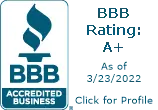The US Justice Department and a few brave judges are becoming very aggressive about the abuses large banks have suffered on their customers.
Judges slam Wells Fargo Bank and Bank of America for their abusive practices.
According to an article from the New York Times titled “Why Judges Are Scowling at Banks”,
The US Justice Department and a few brave judges are becoming very aggressive about the abuses large banks have suffered on their customers.
For instance in September, 2013 Lawyers for the Justice Department contend that Countrywide Financial, a unit of Bank of America, misrepresented the quality of mortgages it sold to Fannie Mae and Freddie Mac, the taxpayer-owned mortgage finance giants, starting in 2007. Fannie and Freddie incurred gross losses of $850 million on the defective loans and net losses of $131 million, the government said. this is not the first, nor will it be the last lawsuit over lending practices during the mortgage mania.
Judge chastised Wells Fargo “The disconnect between Wells Fargo’s publicly advertised face and its actual litigation conduct here could not be more extreme,”
The judge wrote. “A quick visit to Wells Fargo’s Web site confirms that it vigorously promotes itself as consumer-friendly,” he continued, “a far cry from the hard-nosed win-at-any-cost stance it has adopted here.”
“Maybe the judges are tired of the diet of baloney sandwiches the banks have been feeding them,” said April Charney, a foreclosure defense lawyer who for years represented troubled borrowers at Jacksonville Area Legal Aid in Florida. She is now in private practice.
The article discusses two recent rulings — one in New York involving Bank of America and one in Massachusetts involving Wells Fargo. In the Wells Fargo case, a ruling on Sept. 17 by Judge William G. Young of Federal District Court was especially stinging. In it, he required Wells Fargo to provide him with a corporate resolution signed by its president and a majority of its board stating that they stand behind the conduct of the bank’s lawyers in the case. Failure to comply with the court order will result in the matter being set for a jury trial. Obviously, Wells Fargo does not want a jury of the borrower’s peers to be deciding the appropriateness of Wells Fargo’s behavior.

The judge chastised the bank. “The disconnect between Wells Fargo’s publicly advertised face and its actual litigation conduct here could not be more extreme,” the judge wrote. “A quick visit to Wells Fargo’s Web site confirms that it vigorously promotes itself as consumer-friendly,” he continued, “a far cry from the hard-nosed win-at-any-cost stance it has adopted here.”
Needless to say, Wells Fargo is not happy. A representative of Wells Fargo called the judge’s remarks in the ruling “inflammatory and unsubstantiated,”
The second case arose after Mr. and Mrs. Ramos filed for bankruptcy and had the first and second mortgage on their Tampa, Fla., condominium discharged by the court. A discharge protects a borrower from any personal liability. It also forbids any attempt to collect the debt from the borrower.

The judge also ordered the bank to pay $10,000 a month until it stops illegal actions
September 2013 Robert D. Drain, a federal bankruptcy judge in New York, found Bank of America in contempt of the debt discharge order protecting the Ramoses and required the bank to pay their attorney’s legal bills in the case. The judge also ordered the bank to pay $10,000 a month in sanctions to the Ramoses until it stopped making the repayment demands.
A Bank of America spokeswoman said the bank was working to resolve the court’s issues and “researching and investigating what transpired.” But, the Ramoses attorney stated this was just one of many homeowners who have been pursued after bankruptcy discharges were entered.
We have several videos on our web site. Below are two that might be of interest:
- “Options in Bankruptcy, with Notes on Getting Help”
- “Meet Ms. Drain and Suggestions on How to Hire an Attorney”
I applaud Judges Young and Drain (probably extended family) for requiring that large banks follow the law. Also, for their commitment to protect the homeowner. We need more judges and government agencies to step up and hold the banks accountable for their behavior. This comes from an attorney who represented large lending institutions for the first part of her legal career.

Diane is a well respected Arizona bankruptcy and foreclosure attorney. As a retired law professor, she believes in offering everyone, not just her clients, advice about bankruptcy and Arizona foreclosure laws. Diane is also a mentor to hundreds of Arizona attorneys.
*Important Note from Diane: Everything on this web site is offered for educational purposes only and not intended to provide legal advice, nor create an attorney client relationship between you, me, or the author of any article. Information in this web site should not be used as a substitute for competent legal advice from an attorney familiar with your personal circumstances and licensed to practice law in your state. Make sure to check out their reviews.*
In Case You Missed It
Published On: March 31, 2024
Into the Shadows: Unraveling the Dark World of Fraud, Schemes, and Scams The Sneaky World of Fraud and Scams: How They Work and Why You Should Be Careful Fraud and [...]
Published On: March 30, 2024
After 100 Years of Protecting Homeowners, Arizona's Law Changes to Give Creditors New Rights to Take Your Home Depending on the value of your home, creditors can now take it if [...]
Published On: March 24, 2024
Bankruptcy is a complex process that can have significant implications for your business and personal finances. Before considering business bankruptcy as an option for your struggling business, it's crucial to understand the potential pitfalls [...]
Published On: March 8, 2024
In today's consumer landscape, credit cards are the normal tools for managing finances and making purchases. However, having credit card debt can lead to financial stress and vulnerability to predatory schemes. Recognizing the importance [...]












